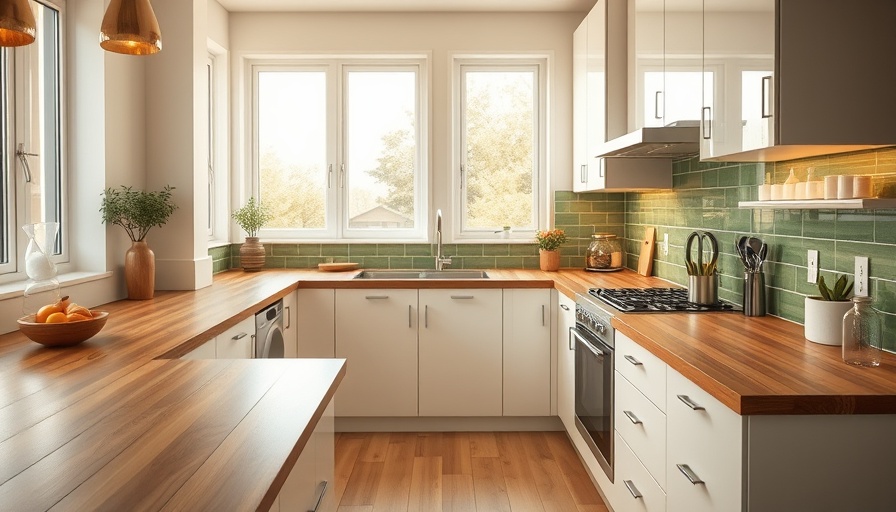
19 Essential Tips for Choosing Wood Kitchen Countertops
Wood kitchen countertops have gained immense popularity among homeowners and real estate professionals alike, lending a warm and inviting aesthetic to kitchens across the nation. However, their allure comes with specific maintenance requirements that are crucial to understand before making a purchase. If you're considering investing in wood countertops for your home—whether it's a lively butcher block in Seattle or a rustic reclaimed oak in Brooklyn—there are essential insights to keep in mind. Here are 19 important factors and expert recommendations for maintaining and enjoying these natural surfaces.
Understanding the Unique Characteristics of Wood Countertops
What sets wood countertops apart from other materials? While granite or quartz offers unparalleled durability, wood provides a unique blend of warmth and rustic charm that can elevate any kitchen. Unlike synthetic countertops that require replacement, wood can be sanded and refinished over time, extending the lifecycle of your investment. However, it's important to note that wood is softer and can be prone to dents and stains if not cared for properly, necessitating a commitment to routine maintenance.
Selecting the Right Type of Wood: Durability Matters
Experts recommend opting for dense hardwoods such as mahogany, hard maple, or white oak. These choices not only add visual appeal to your kitchen but also promise longevity and durability against daily use. Softer woods, while they may initially appear attractive, may succumb to wear more quickly and thus require more frequent upkeep.
Emphasizing Functionality with Aesthetic Appeal
When choosing wood countertops, it's crucial to strike a balance between beauty and functionality. For those who love to cook, butcher block styles made from woods like pine or oak provide utility with some inherent antimicrobial properties. This allows for food preparation while enhancing the kitchen's visual warmth. However, unlike granite, wood surfaces are not naturally resistant to heat or moisture, so exercise caution during usage.
Embracing Reclaimed Wood for a Unique Look
If you're after a distinctive and eco-friendly design, consider incorporating reclaimed barn wood into your kitchen. Beyond their rustic charm, these countertops bring a story of sustainability and uniqueness that mass-produced materials simply can't replicate. Custom-made options can enhance your kitchen's ambiance, providing a bespoke solution tailored to your aesthetic preferences.
Choosing Non-toxic Products for Care and Maintenance
For those who prioritize health and sustainability, non-toxic care products can make all the difference. A practical recommendation from artisans would be to use conditioners made from food-safe oils and beeswax. This approach not only protects your investment but also enhances its natural beauty without introducing harmful chemicals into your home.
Making Environmentally Friendly Choices
The longevity of wood countertops stems from their ability to withstand the ravages of time through simple refinishing instead of outright replacement. By sourcing wood locally, you don’t just bring a touch of nature into your kitchen; you make an environmentally conscious choice that supports sustainable practices within your community.
The Impact of Finishes and Tones on Aesthetics
When selecting hardwood countertops, consider how the wood type interacts with finishes and tones. Natural grain variations and live edge designs introduce a dynamic quality that often requires little or no paint. This can streamline your kitchen design process while maintaining a fresh sense of style that adapts gracefully over time.
Integrating Wood Countertops into Real Estate Designs
For real estate agents and homeowners looking to boost property appeal in a competitive market, wood countertops can represent a significant asset. Many buyers appreciate the craftsmanship and warmth associated with wood surfaces, making them a desirable feature in new construction homes or renovations. Investing in quality countertops can yield dividends when marketing properties, helping to set them apart on platforms like Zillow or Trulia.
Budgeting for Wood Countertops: What to Expect
Understanding the financial commitment involved is essential when opting for wood countertops. Generally, prices can vary significantly based on wood types, finishes, and customizations. A realistic budget allows homeowners to select high-quality options that meet their design and functional needs without compromising integrity.
Conclusion: Consider the Full Potential of Wood Countertops
When considering wood cabinetry and countertops, homeowners and real estate professionals should approach the decision strategically. Understanding the implications of material care, aesthetic considerations, and market dynamics can ensure a rewarding investment in your home. Exciting potential awaits those who embrace this timeless kitchen feature, infusing their spaces with character and longevity.
Explore your options and discover the right wood kitchen countertop for your home. Your kitchen deserves the best!
 Add Row
Add Row  Add
Add 




Write A Comment